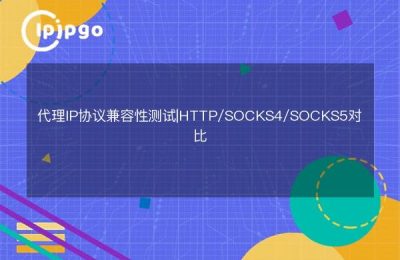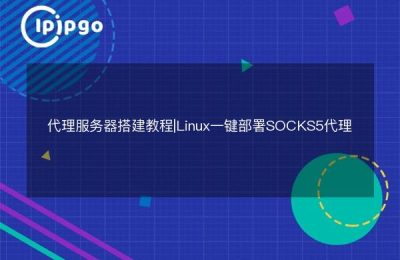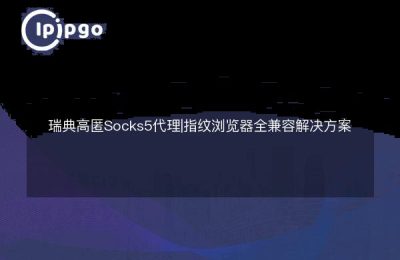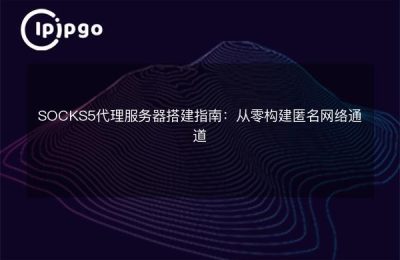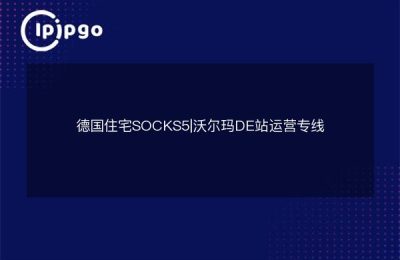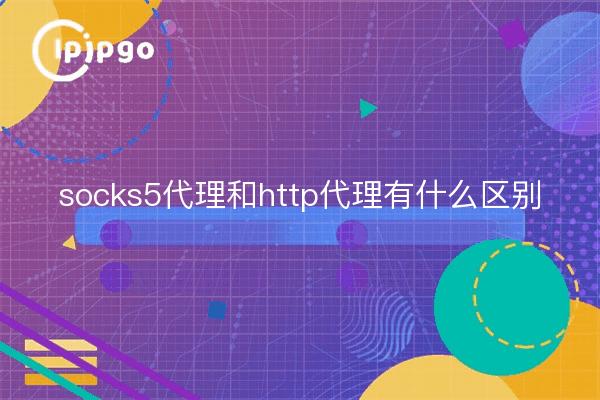
In the world of Internet, proxy servers are like "middlemen" for us to surf the Internet. They help us hide our real IP and bypass some network restrictions. Today we are going to talk about two common types of proxies: SOCKS5 proxies and HTTP proxies. Although they look similar on the surface, there are actually quite a few differences. Let's explore the differences in more detail with a few subheadings.
What is a SOCKS5 Agent?
The SOCKS5 proxy is a generalized proxy protocol that supports not only the TCP protocol, but also the UDP protocol. Compared to its predecessor SOCKS4, SOCKS5 adds support for user authentication and IPv6. In short, the SOCKS5 proxy is like a universal "portal" that can transfer all types of packets, whether it is web browsing, video playback or game data.
Interestingly, the SOCKS5 agent is like an "invisible agent" that does not modify or intervene in the transmitted data. It simply transfers the packets from one place to another, regardless of what is in the packets. This "foolproof" method of transmission, although it seems a bit "lazy", is very efficient.
What is an HTTP proxy?
HTTP proxy is a proxy server specially designed for HTTP protocol.HTTP protocol is the most commonly used protocol in our daily web browsing, so HTTP proxy is very common in web browsing.HTTP proxy can cache web content, speed up web page loading, and also filter ads and malicious content.
HTTP proxy is like a "smart housekeeper", it will not only help you to transfer data, but also some optimization and processing of data. For example, when you visit a web page, the HTTP proxy can help you cache the content of the web page in advance, so that the next time you visit the same web page will be much faster. HTTP proxy can also be filtered according to your needs, such as blocking ads and malicious sites.
Difference between SOCKS5 proxy and HTTP proxy
Although SOCKS5 Proxy and HTTP Proxy are both proxy servers, they are distinctly different in their functionality and usage.
First of all, the SOCKS5 proxy is a general-purpose proxy protocol that can transport all types of packets, while the HTTP proxy is designed specifically for the HTTP protocol and can only handle HTTP and HTTPS requests.
Secondly, the SOCKS5 proxy does not make any modifications or intervene in the transmitted data, whereas the HTTP proxy caches, filters, and so on. This makes the HTTP proxy more efficient when browsing the web, but less flexible than the SOCKS5 proxy when transferring other types of data.
Finally, SOCKS5 proxies support user authentication and IPv6, whereas HTTP proxies do not necessarily support these features. This makes the SOCKS5 proxy more secure and advanced in certain scenarios.
When to use SOCKS5 proxy?
The SOCKS5 agent is suitable for a variety of scenarios where different types of data need to be transferred, for example:
- Online gaming: SOCKS5 proxy can transfer game packets and reduce latency.
- Video Streaming: SOCKS5 Agent can transfer video data to ensure smooth playback.
- P2P download: SOCKS5 agent can transfer P2P packets to increase the download speed.
Overall, SOCKS5 agents are suitable for those scenarios that require high flexibility and high transmission efficiency.
When to use HTTP proxy?
HTTP proxies, on the other hand, are suitable for those scenarios where the main focus is on web browsing, for example:
- Daily web browsing: HTTP proxy can speed up web page loading and filter ads.
- Enterprise network management: HTTP proxy can filter malicious websites and improve network security.
- Content caching: The HTTP proxy can cache the content of frequently visited web pages to improve access speed.
Overall, HTTP proxies are suitable for those scenarios where the HTTP protocol is predominant, especially when there is a need to optimize web page loading speed and improve network security.
summarize
Through the above comparison, we can see that the SOCKS5 proxy and HTTP proxy have their own advantages and are suitable for different scenarios. SOCKS5 proxy is like an all-purpose "portal", which can transfer all types of packets, and is very efficient. The HTTP proxy is like a "smart housekeeper" that can optimize and process data, which is especially suitable for web browsing.
Therefore, when choosing a proxy server, we need to choose the most appropriate type of proxy according to the specific needs. Whether it is a SOCKS5 proxy or HTTP proxy, they are indispensable to our Internet "good helper".

